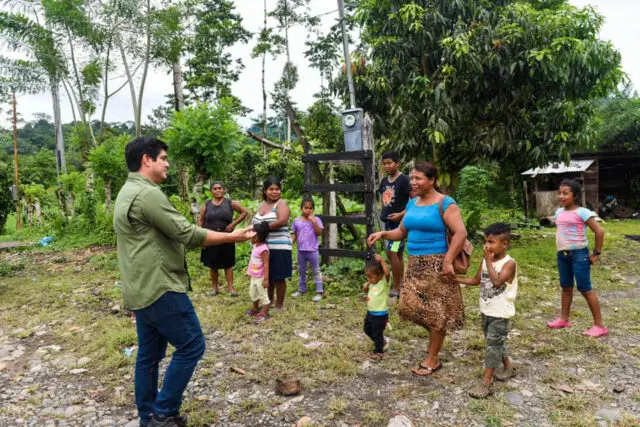The United Nations Organization asked this past week to guarantee the indigenous peoples of Costa Rica access to land, a fundamental action to ensure respect for their rights and peaceful coexistence.
Within the framework of the International Day of Indigenous Peoples, the United Nations office in Costa Rica affirmed that this date represents a great opportunity to recognize and reaffirm the commitment of people, societies and the entire planet, with their individual and collective rights.
Not respecting their territories
The UN expressed its concern with the increase in tensions in some regions due to non-compliance with the law that establishes that indigenous peoples have 3,300 square kilometers insured for their territories, approximately 7% of the country’s territory, but more than a One third of these territories are occupied by non-indigenous people.
“In order to overcome the challenges, it is essential to ensure the implementation of the National Plan for the Recovery of Indigenous Territories, as well as to guarantee the necessary protection measures that protect the integrity of the indigenous leaders threatened for defending their lands, territories, and resources,” said the United Nations representatives.
Among the rights, the UN highlighted including the guarantee of self-determination; to the secure tenure of their lands; to free, prior and informed consultation; to the protection of human rights defenders; prompt, effective and culturally relevant justice; and access to basic services and development opportunities.

No one is left behind
“We reiterate our priority of working tirelessly to support the country in fulfilling the 2030 Agenda so that no indigenous person is left behind, and we insist that in order to overcome many of the challenges that these peoples face, it is necessary that we break down all the barriers that prevent the free enjoyment of the rights of indigenous peoples,” the United Nations said in a press release.
Among some of the challenges, the United Nations indicated that it is essential to address the deprivation and lack of access to basic services and opportunities that most strongly affect children, adolescents and young people.
Official data from the National Institute of Statistics and Censuses indicate that 70% of indigenous households have unsatisfied basic needs in essential areas such as health, education and housing, while the national average reaches just 24%.
In Costa Rica poverty reaches 23% of households, however, in the case of indigenous peoples, the figures are disproportionate: in the Cabécar people it is 94%; in the Ngäbe people 87% and in the Brörán people 85%; to name just a few.
In addition, the percentage of indigenous adolescent women who are mothers exceeds double the national total. And regarding education, only 13% of indigenous people graduate from high school.
The UN urged the Costa Rican State to strengthen the work of human rights defense institutions and, particularly, the individual and collective rights of indigenous and tribal peoples.

